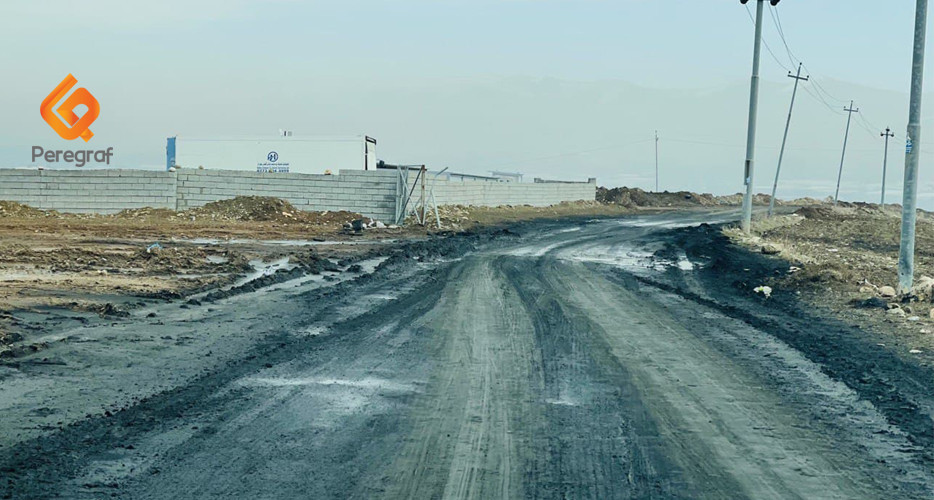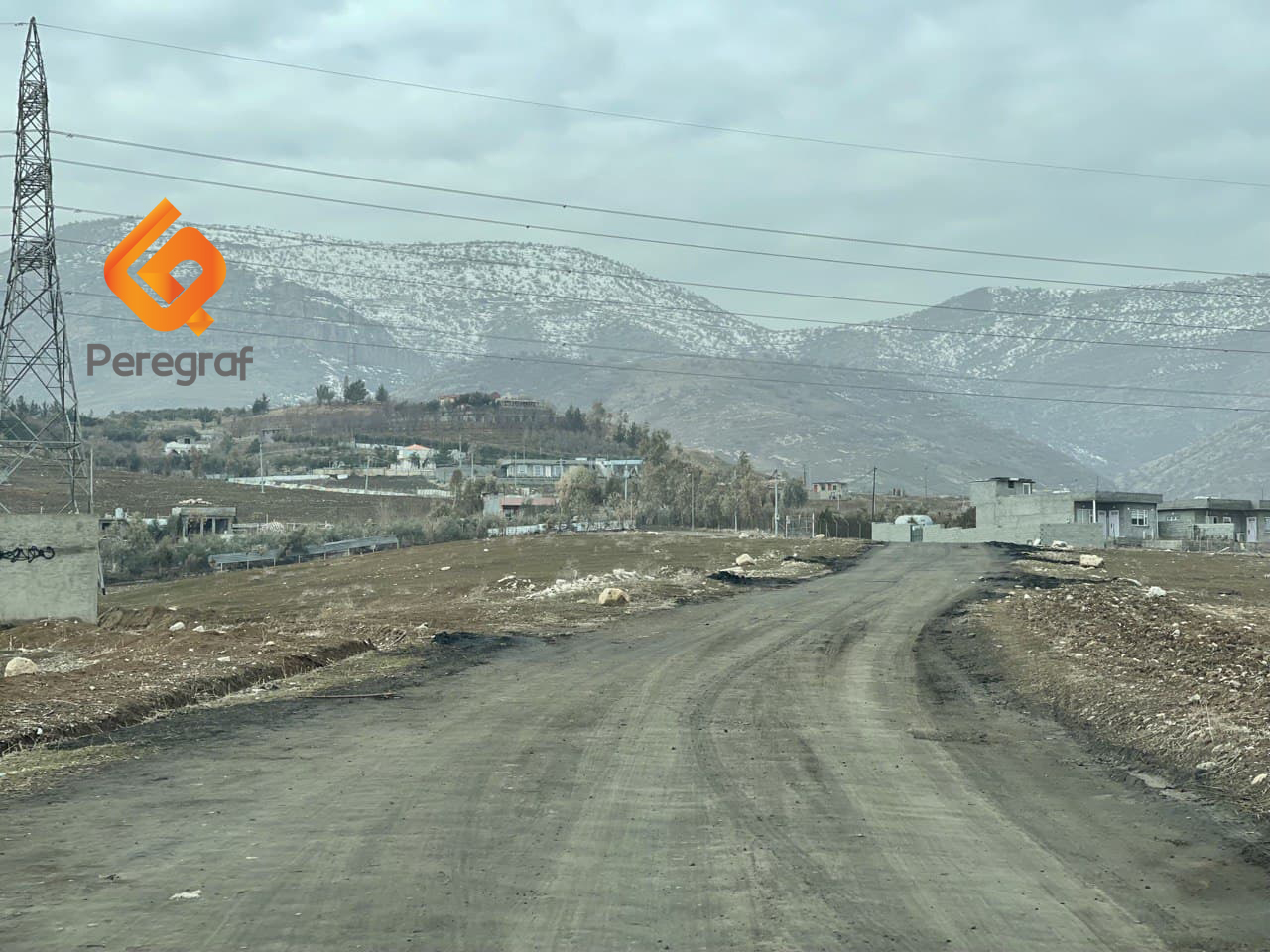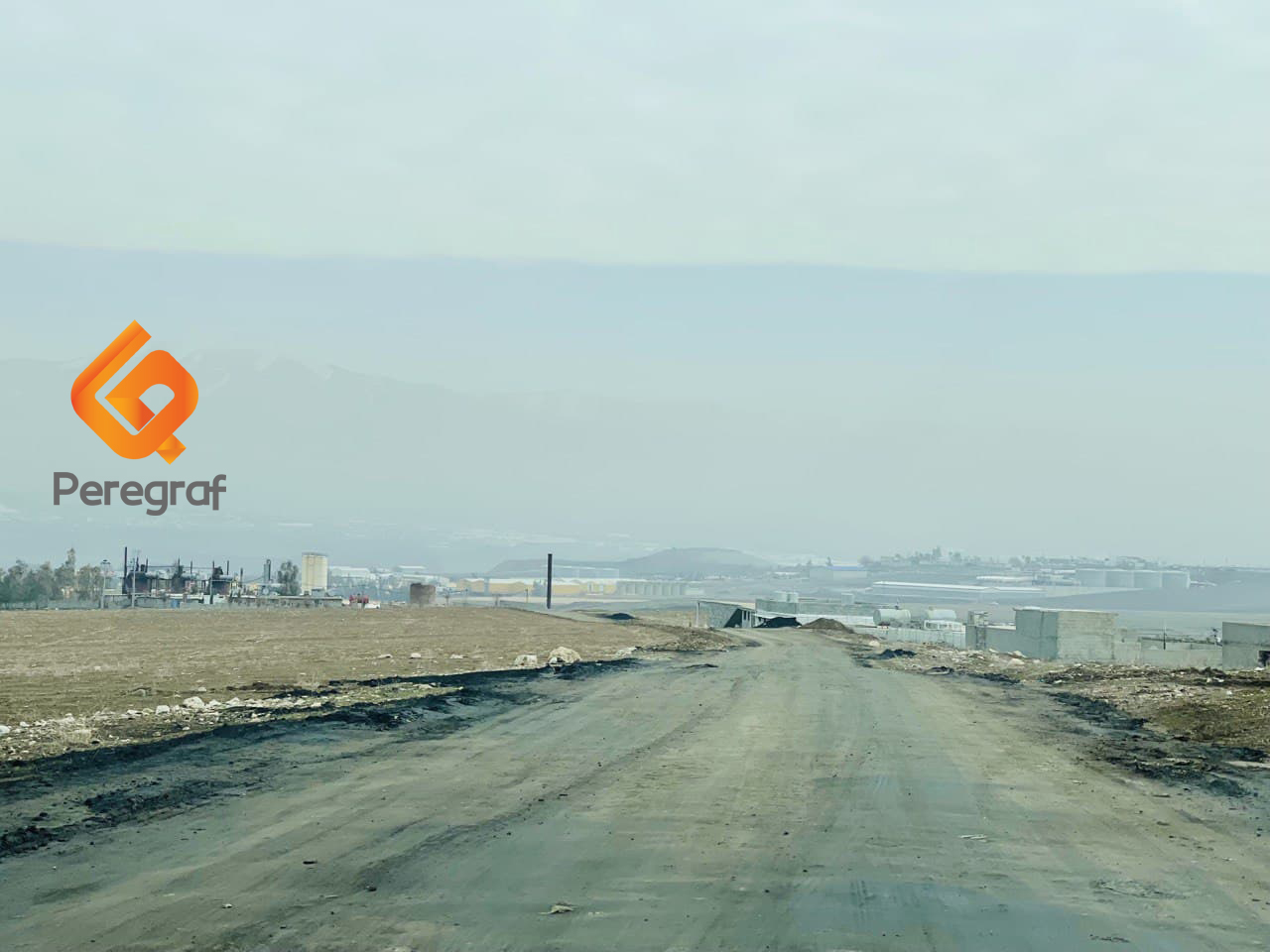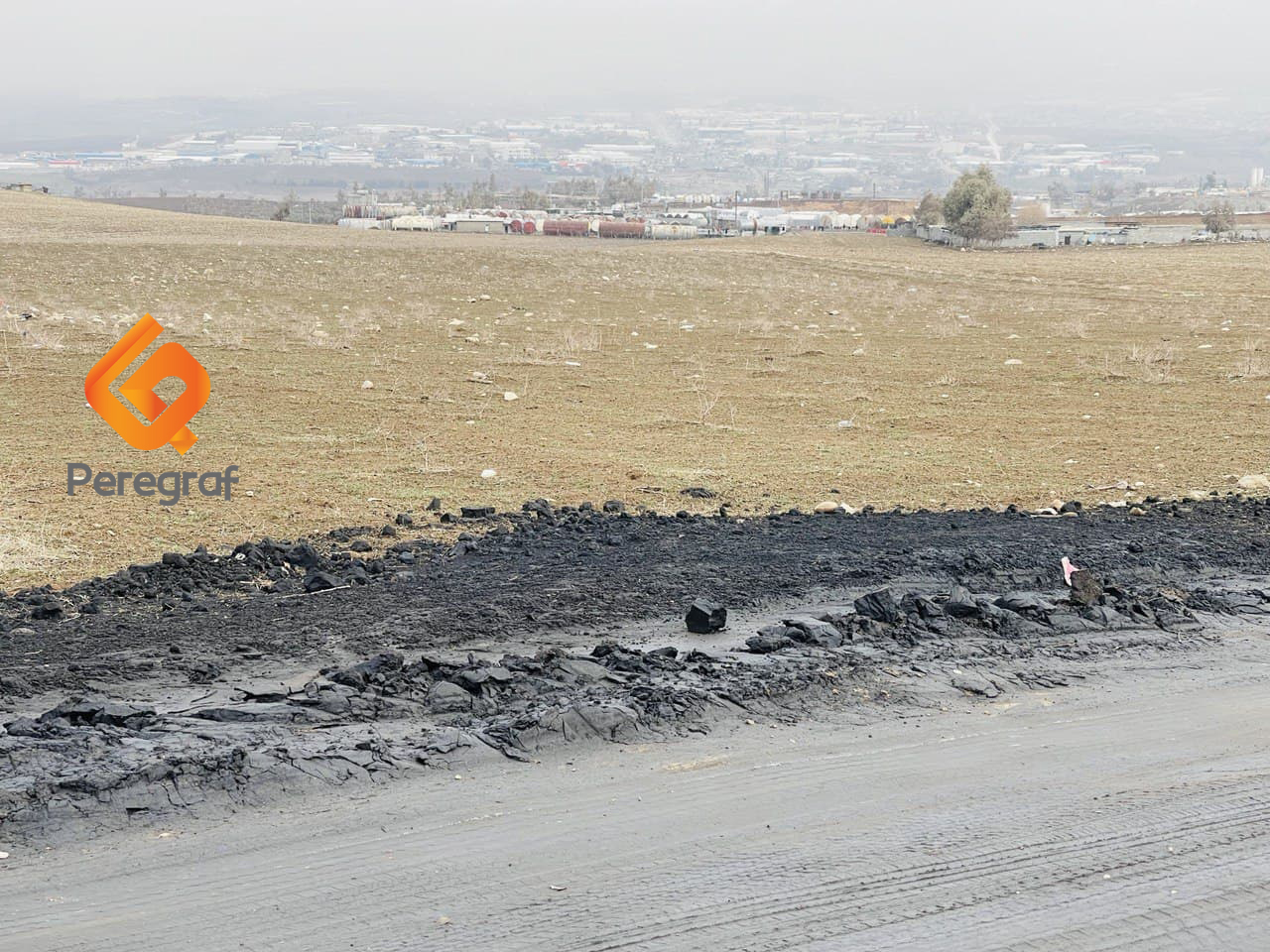
Peregraf– Ghamgin Muhammed
Black, greasy oil waste has covered the dirt roads to the villages of Sulaimaniyah province’s Tanjaro. It looks like fresh asphalt pavement at a glance, but it’s not. It’s a mere alternative used by villagers to contain dust and mud, unaware of the health and environmental threats it poses.
Tanjaro, a populated area located southeast of Sulaimaniyah city, has become an industrial zone and a dumpsite for the city’s thousands of tons of garbage, or rather a zone where humans, animals and plants suffer from threats of industrial waste, air pollution, soil and water contamination.
"It's been two years since they have been spilling this burnt oil on this street. I don't know who is doing it, but if the road is wet and there’s more spillage, our cars will slide," Taha Abdullah, a villager from Tanjaro who commutes to the city for work every day, told Peregraf.
"We have to go very carefully, otherwise, you won't be able to control the car easily and you'll get into an accident," he added.
But that is only the tip of the iceberg. As I make my way to Gopita village, there are several greenhouses, some less than five meters away from the road where the oil waste that contaminates their agriculture is spilled.

Baji Fatim from the Gopita village says people from the village used to buy the waste from the factories for 40,000 Iraqi dinars (about $27) to spread it to cover their dusty roads.
"You don't know, if not for that we would be covered in dust from passing cars, it’s better now," she said, oblivious to the threats the waste poses on their health and environment when asked about it.
Another villager, an old man called Mam Ali, said the roads have been like this for as long as he has lived there. "The government doesn’t pave it, so the factory spills have made the dust situation better," he said.
Factory workers now bring the waste to the villages in their own cars free of charge and dump them on the roads, then the villagers spread it themselves.
As I was passing Gopita village to another location, I spotted a car in action from one of the factories. So I took that chance to ask them where they were bringing the waste from and who they had permission from to do this?
However, they refused to answer the question, telling me that they are "just employees" and have been told to do so. According to the driver of the car, who did not want to be named, "Villagers often thank us and say they say it gets rid of the dust," he said, refusing to give out any other information.
This act under 2008’s law number 8 of environmental protection and improvement, is punishable by imprisonment or fines up to 200 million Iraqi dinars.

According to the director of Sulaimaniyah’s road services, Mohammed Jalil, there isn’t enough budget for pavements in Tanjaro. "The government does not have a budget, and plans to repair and pave rural roads are not implemented by the ministry of construction," said Jalil.
Jalil added he was aware the waste is spread out in Tanjaro but that "It is not in our power to prevent it, and it is the work of the municipality and the administrative officials."
"The illegal factories and refineries in Tanjaro have damaged the environment a lot. There have been plans to repair these roads, but because of the refineries and factories, they have not been able to implement them," he noted.
During the hot seasons, some of the waste evaporates into the air, the rest goes back into the soil during rain, it gets mixed with groundwater and contaminates it, which again contaminates agricultural lands and the vegetables consumed by the people.
According to environmental specialist Salih Majid, "The oil refinery waste contains hydrocarbon materials and heavy elements. For each compound, there are limits on how much of it is allowed to enter the air and soil, but in the Kurdistan Region these issues are completely ignored."
Majid added that the factory wastes "should be properly recycled and destroyed."

There are many illegal oil refineries in the Kurdistan Region that have caused major environmental pollution, an issue addressed by the Kurdistan Regional Government (KRG) itself, saying it has become a source of "dangerous diseases." Despite decisions to close them, some of them are still operating.
The Head of the villages' administrative division of Bakrajo, Osman Anwar, confirmed to Peregraf that the waste "is burnt oil from the factories and the villagers are satisfied with it."
"Most of the streets and neighborhoods are not paved and people are tired of summer dust and winter mud, so if I know which factory's waste it is, I'll ask them myself to spread it out in other areas of Bakrajo sub-district," he added.
Environmental organizations have repeatedly called for illegal refineries to be closed down, and factories to abide by environmental regulations, a call that goes in one ear and out the other.
"Because authorities, and those who benefit from it, have more power over science and academia, so it won't get any better," Jalil said.